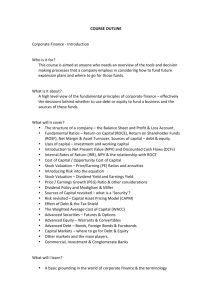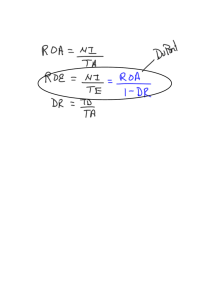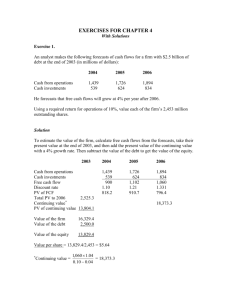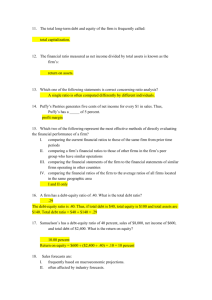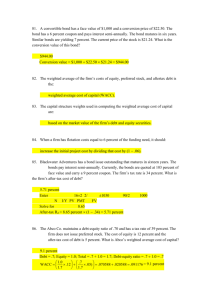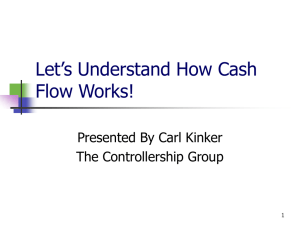Quarterly_Letter_-_Email_Version
advertisement
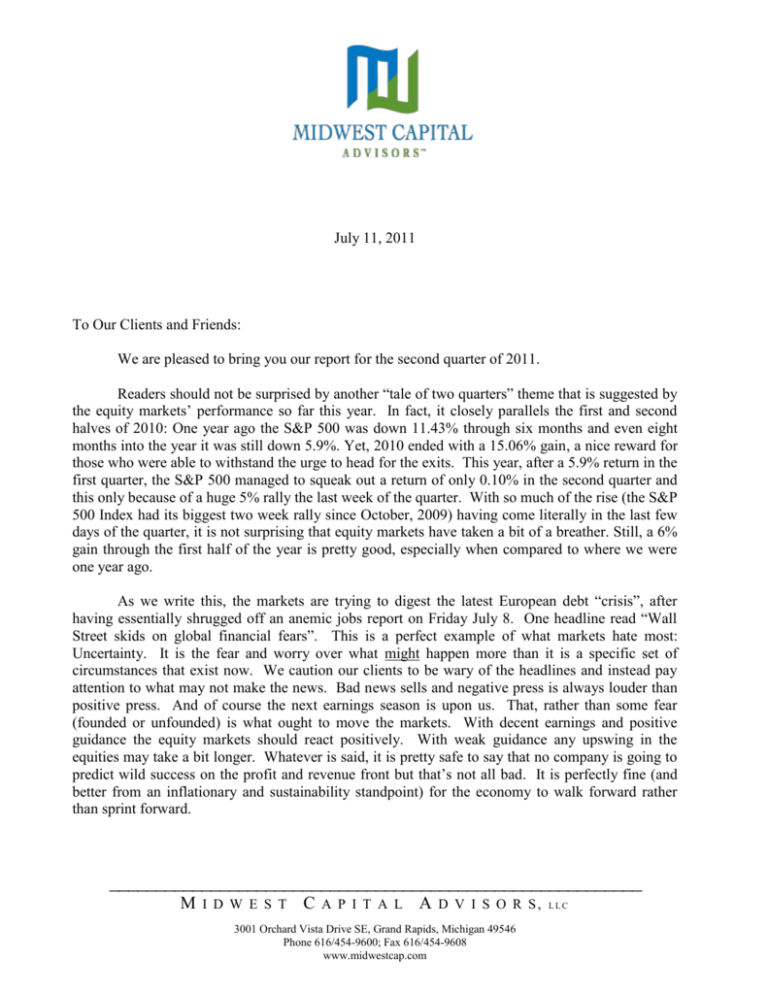
July 11, 2011 To Our Clients and Friends: We are pleased to bring you our report for the second quarter of 2011. Readers should not be surprised by another “tale of two quarters” theme that is suggested by the equity markets’ performance so far this year. In fact, it closely parallels the first and second halves of 2010: One year ago the S&P 500 was down 11.43% through six months and even eight months into the year it was still down 5.9%. Yet, 2010 ended with a 15.06% gain, a nice reward for those who were able to withstand the urge to head for the exits. This year, after a 5.9% return in the first quarter, the S&P 500 managed to squeak out a return of only 0.10% in the second quarter and this only because of a huge 5% rally the last week of the quarter. With so much of the rise (the S&P 500 Index had its biggest two week rally since October, 2009) having come literally in the last few days of the quarter, it is not surprising that equity markets have taken a bit of a breather. Still, a 6% gain through the first half of the year is pretty good, especially when compared to where we were one year ago. As we write this, the markets are trying to digest the latest European debt “crisis”, after having essentially shrugged off an anemic jobs report on Friday July 8. One headline read “Wall Street skids on global financial fears”. This is a perfect example of what markets hate most: Uncertainty. It is the fear and worry over what might happen more than it is a specific set of circumstances that exist now. We caution our clients to be wary of the headlines and instead pay attention to what may not make the news. Bad news sells and negative press is always louder than positive press. And of course the next earnings season is upon us. That, rather than some fear (founded or unfounded) is what ought to move the markets. With decent earnings and positive guidance the equity markets should react positively. With weak guidance any upswing in the equities may take a bit longer. Whatever is said, it is pretty safe to say that no company is going to predict wild success on the profit and revenue front but that’s not all bad. It is perfectly fine (and better from an inflationary and sustainability standpoint) for the economy to walk forward rather than sprint forward. __________________________________________________________ M I D W E S T C A P I T A L A D V I S O R S, 3001 Orchard Vista Drive SE, Grand Rapids, Michigan 49546 Phone 616/454-9600; Fax 616/454-9608 www.midwestcap.com LLC Midwest Capital Advisors, LLC Quarterly Report July 11, 2011 Page 2 The prescription for any market (but particularly a volatile one) is to position your portfolio with a risk/potential return profile that lets you sleep at night but still gets the job done. If you are unsure of how your portfolio should be allocated please contact us and we will help you with it. The sidelines are not a good place to be right now as cash is returning essentially 0%, which means every dollar you keep in cash is shrinking by the amount of inflation. And, by all means, avoid trying to time the market: The risk of getting out “at the bottom” and getting back in “at the top” is significant and can severely disrupt the effectiveness and durability of your investment plan. By the time of our next scheduled communication, the debt ceiling issue will be resolved (at least temporarily) one way or another. Despite the political games being played in Washington, very few people seriously believe that Congress will not raise the debt ceiling. No one wants to run the risk or pay the price1 of significant increases in interest rates on U.S. debt that would undoubtedly accompany a failure to raise the limit. That being said, with all the time (decades) it has taken politicians to get us to the brink of having our own debt crisis (which, unlike Greece or Italy, would be a crisis), it is unrealistic to believe that a substantive, comprehensive debt reduction package (a key to resolution of the debt ceiling issue) will come before the August 2 deadline. And, should the politicians in Washington need another reason to reach a debt reduction deal they need look no further than the fact that employers are not going to commit to meaningful hiring until there is some degree of certainty and resolution of how Washington is going to get its fiscal house in order. We thank you for your confidence in Midwest Capital Advisors, and, as always, we welcome your thoughts and questions. Henry G. Swain Edward E. Pike Michael D. DeSmyter 1 How big of a price? No one knows for sure, but even a 1% rise in interest rates costs the U.S. $150 billion in additional interest costs, which would significantly add to our long-term deficit woes. ________________________________________________________________ M I D W E S T C A P I T A L A D V I S O R S, LLC
